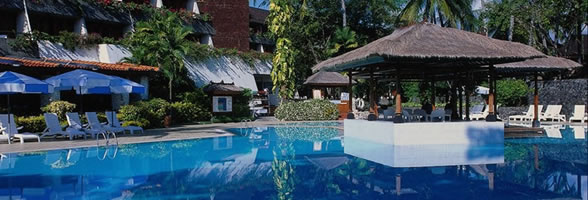
relax,rejuvenate and enjoy your Trip to Kenya
Kenya Safari & beach holiday
- COUNTRY:
- Kenya
- DEPARTURES:
- Departures every first and third Monday of the month throughout the year. This trip can also be tailormade usually at no extra cost.
- PRICE:
- From US $1,753 (EU €1,279) - US $1,804 (EU €1,316) (8 days)
- MORE INFO:
- Price is per person based on two people sharing and depends on season dependant. Price includes all transport, English speaking guide, activities & tours, park fees, accommodation and meals as per itinerary and domestic flight from Diani Beach to Nairobi.
Kenyan safari & beach holiday
Your next destination, Tsavo National park, is one of the world's largest game sanctuaries, covering an area of more than 20,000 sq. km (7,722 sq. miles). Tsavo is a combination of dramatic escarpment landscapes with the raw, untamed flavor of one of Africa's great wilderness areas.
After your safari you will immerse yourself in the warm, turquoise waters of the Indian Ocean. You can simply read a book under a tropical palm tree while you soak in the sun on one of the world most pristine white beaches, or gaze at the beautiful warm waters and watch local Swahili fisherman sail by or do. If you want some more action, we have you covered. Why not try snorkeling, diving, deep sea fishing, surfing and kite-surfing? Diani also offers an 18-hole golf course. A variety of optional excursions from Diani can be arranged including swimming with dolphins, snorkeling and diving in Kisite Marine National Park, a Mombasa city tour, a visit to a local Swahili village, Nature trails & bird watching tour, a visit to a tropical rain forest, and even a visit Shimba Hills National Reserve.
Day-by-day itinerary
| Day 1: | Depart from Nairobi and travel South towards Mt.Kilimanjaro. Afternoon game viewing at Amboseli National Park. Overnight at Kibo Safari Camp |
| Day 2: | Morning game drive, Travel to Tsavo West National park. On route visit Shetani lava flow & Mzima springs. Afternoon game dive. Overnight at Ngulia Safari Camp |
| Day 3: | Morning & Afternoon game drive, Sundowner. Overnight at Ngulia Safari Camp |
| Day 4: | Morning game drive, Travel to Diani Beach. Overnight at Pinewood Village Beach Resort |
| Day 5: | Beach leisure. Overnight at Pinewood Village Beach Resort. Several optional add-ons are available including a huge array of water sports and diving. |
| Day 6: | Beach leisure. Overnight at Pinewood Village Beach Resort. Several optional add-ons are available including a huge array of water sports and diving. |
| Day 7: | Beach leisure. Overnight at Pinewood Village Beach Resort. Several optional add-ons are available including a huge array of water sports and diving. |
| Day 8: | Transfer to Diani Airstrip for a flight back to Nairobi – Wilson Airport. |
How this holiday makes a difference
Environment
We aim to reveal the ‘real’ Africa to our customers. We are only affiliated companies and places that are trusted. Our journey tries to stay off the beaten track as we fully believe in preserving the natural African beauty by aiming to promote local cultures and protecting the environment. We are constantly adapting and enhancing our route plan if we become aware of new points of interest and carefully select our accommodation and lodges after thoroughly evaluating their suitability for our clients. Wherever we can, we use eco-friendly camps and lodges, where management acts responsibly to the environment and local communities in all aspects possible. Our business is small and thus unlike big agents we deal with our clients on a personal basis tailoring their journey to their needs as much as we can. Africa is our passion and we want to pass on all our knowledge and experiences gained over the years to our clients.
The vegetation, wildlife and ecosystem of the National Parks are constantly under threat due to the increase of tourism and of human activity in these protected areas. Every traveller, visitor or trekker will have an impact on the National Parks by simply being there, which although minimal on its own, when added to the other thousands of people visiting each year has a cumulative effect on the environment. By being aware of your impact and being responsible, you will secure the future of these unique places and keep their beauty intact. First and foremost, please respect the environment by not leaving litter during your travels. Take it with you or give it to your guide, who will dispose of it. Please don’t forget that the wildlife in the National Parks & Conservation areas are WILD! Feeding, approaching or patting the animals is not allowed and it is NOT a good idea!
Never buy wildlife souvenirs such as ivory, tortoiseshell, fur, horns, ostrich eggs, shells, corals etc. This is illegal and with doing so you will only encourage the trade.
Community
There are more than 70 tribal groups in Kenya. The biggest tribe is the Kikuyu followed by Luo and Luyha; many of them live a “modern” life now days. Mostly the smaller tribes like the Masai, Samburu, Turkana and Pokot keep their strong traditions even today. Most Kenyans are Christians of one sort or another while the coastal area is mainly Muslim.
When visiting remote villages, the local people are simple and sometimes shy (especially women and children). So please respect their culture and don’t make pictures before you politely ask them if you can take some.
Please also note that the coast is mostly Muslim orientated. When visiting local areas on the coast (like local villages, Wasini Island, Mombasa town) please appreciate their culture and dress according to that. For women longer skirt and t-shirt or blouse would be appropriate. A good solution is to by on the market Sarong or Kanga - a peace of cloth which you can tight around your west when needed.








